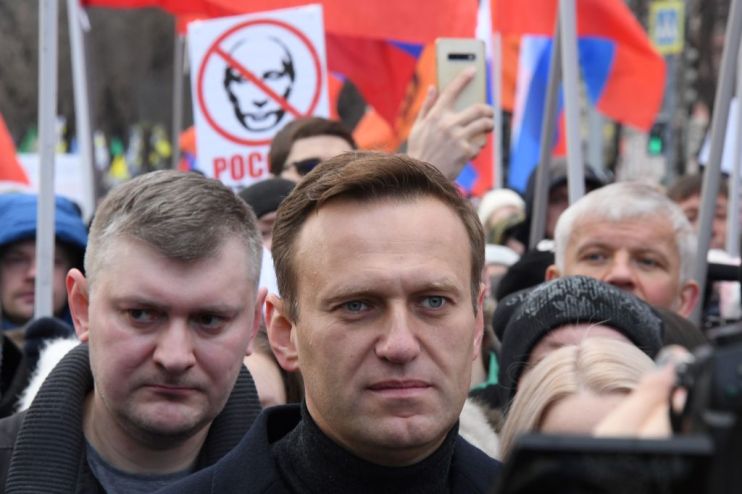Russian opposition leader Alexei Navalny hospitalised after suspected poisoning

Russian opposition politician Alexei Navalny is in a serious condition in a Siberian hospital after suffering severe symptoms of suspected poisoning, his spokeswoman said today.
Navalny, 44, is unconscious, in intensive care and on an artificial lung ventilator, his spokeswoman, Kira Yarmysh, said on social media.
“We assume that Alexei was poisoned with something mixed into his tea. It was the only thing that he drank in the morning. Doctors say the toxin was absorbed faster through the hot liquid. Alexei is now unconscious,” Yarmysh said.
Navalny, a fierce critic of President Vladimir Putin, had started feeling ill when returning to Moscow from Tomsk in Siberia by plane on Wednesday morning, she added.
He had drunk tea at a cafe at Tomsk airport before boarding his flight. The Interfax news agency quoted the cafe’s owners as saying they were checking CCTV cameras to try to establish what had happened.
His plane later made an emergency landing in Omsk so that he could be rushed to hospital, Yarmysh said.
The TASS news agency cited the head doctor at a hospital in Omsk confirming that Navalny had been admitted there and saying he was in a serious condition.
Yarmysh drew a parallel with an incident last year in which Navalny suffered an acute allergic reaction that one doctor said could have resulted from poisoning with an unknown chemical.
“Obviously the same has been done to him now,” said Yarmysh. She did not say who she believed may have poisoned Navalny, but said police had been called to the hospital.
Navalny, a lawyer and anti-corruption activist, has served several stints in jail in recent years for organising anti-Kremlin protests.
Navalny has helped release high-impact investigations into what he has said are outrageous examples of official corruption.
Russia holds regional elections next month and Navalny and his allies have been preparing for them, trying to increase support for candidates which they back.
The European Court of Human Rights has ruled that Russia’s arrests and detention of Navalny in 2012 and 2014 were politically-motivated and violated his human rights, a ruling Moscow called questionable.
Opponents of the Kremlin have previously been killed in poisoning or shooting attacks during Putin’s period in power.
Former Russian spy and defector Alexander Litvinenko was fatally poisoned in London in 2006 with radioactive polonium with later investigations pointing to the involvement of the Russian state in his murder.
Journalist and Kremlin critic Anna Politkovskaya was murdered in 2006 after surviving an earlier poisoning attack in 2004.
In 2015 opposition politician Boris Nemtsov was gunned down alongside his partner Anna Durytska on a bridge in Moscow.